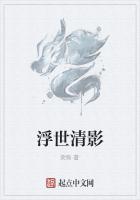"After stooping some time, sense of painful weight about the head upon resuming the erect posture."
"An itching, tickling sensation at the outer edge of the palm of the left hand, which obliges the person to scratch." The medicine was acetate of lime, and as the action of the globule taken is said to last twenty-eight days, you may judge how many such symptoms as the last might be supposed to happen.
Among the symptoms attributed to muriatic acid are these: a catarrh, sighing, pimples; "after having written a long time with the back a little bent over, violent pain in the back and shoulder-blades, as if from a strain,"--"dreams which are not remembered,--disposition to mental dejection,--wakefulness before and after midnight."
I might extend this catalogue almost indefinitely. I have not cited these specimens with any view to exciting a sense of the ridiculous, which many others of those mentioned would not fail to do, but to show that the common accidents of sensation, the little bodily inconveniences to which all of us are subject, are seriously and systematically ascribed to whatever medicine may have been exhibited, even in the minute doses I have mentioned, whole days or weeks previously.
To these are added all the symptoms ever said by anybody, whether deserving confidence or not, as I shall hereafter illustrate, to be produced by the substance in question.
The effects of sixty-four medicinal substances, ascertained by one or both of these methods, are enumerated in the Materia Medica of Hahnemann, which may be considered as the basis of practical Homoeopathy. In the Manual of Jahr, which is the common guide, so far as I know, of those who practise Homoeopathy in these regions, two hundred remedies are enumerated, many of which, however, have never been employed in practice. In at least one edition there were no means of distinguishing those which had been tried upon the sick from the others. It is true that marks have been added in the edition employed here, which serve to distinguish them; but what are we to think of a standard practical author on Materia Medica, who at one time omits to designate the proper doses of his remedies, and at another to let us have any means of knowing whether a remedy has ever been tried or not, while he is recommending its employment in the most critical and threatening diseases?
I think that, from what I have shown of the character of Hahnemann's experiments, it would be a satisfaction to any candid inquirer to know whether other persons, to whose assertions he could look with confidence, confirm these pretended facts. Now there are many individuals, long and well known to the scientific world, who have tried these experiments upon healthy subjects, and utterly deny that their effects have at all corresponded to Hahnemann's assertions.
I will take, for instance, the statements of Andral (and I am not referring to his well-known public experiments in his hospital as to the result of his own trials. This distinguished physician is Professor of Medicine in the School of Paris, and one of the most widely known and valued authors upon practical and theoretical subjects the profession can claim in any country. He is a man of great kindness of character, a most liberal eclectic by nature and habit, of unquestioned integrity, and is called, in the leading article of the first number of the "Homoepathic Examiner," "an eminent and very enlightened allopathist." Assisted by a number of other persons in good health, he experimented on the effects of cinchona, aconite, sulphur, arnica, and the other most highly extolled remedies. His experiments lasted a year, and he stated publicly to the Academy of Medicine that they never produced the slightest appearance of the symptoms attributed to them. The results of a man like this, so extensively known as one of the most philosophical and candid, as well as brilliant of instructors, and whose admirable abilities and signal liberality are generally conceded, ought to be of great weight in deciding the question.
M. Double, a well-known medical writer and a physician of high standing in Paris, had occasion so long ago as 1801, before he had heard of Homoeopathy, to make experiments upon Cinchona, or Peruvian bark. He and several others took the drug in every kind of dose for four months, and the fever it is pretended by Hahnemann to excite never was produced.
M. Bonnet, President of the Royal Society of Medicine of Bordeaux, had occasion to observe many soldiers during the Peninsular War, who made use of Cinchona as a preservative against different diseases, but he never found it to produce the pretended paroxysms.
If any objection were made to evidence of this kind, I would refer to the express experiments on many of the Homoeopathic substances, which were given to healthy persons with every precaution as to diet and regimen, by M. Louis Fleury, without being followed by the slightest of the pretended consequences. And let me mention as a curious fact, that the same quantity of arsenic given to one animal in the common form of the unprepared powder, and to another after having been rubbed up into six hundred globules, offered no particular difference of activity in the two cases.
This is a strange contradiction to the doctrine of the development of what they call dynamic power, by means of friction and subdivision.
In 1835 a public challenge was offered to the best known Homoeopathic physician in Paris to select any ten substances asserted to produce the most striking effects; to prepare them himself; to choose one by lot without knowing which of them he had taken, and try it upon himself or any intelligent and devoted Homoeopatbist, and, waiting his own time, to come forward and tell what substance had been employed. The challenge was at first accepted, but the acceptance retracted before the time of trial arrived.













